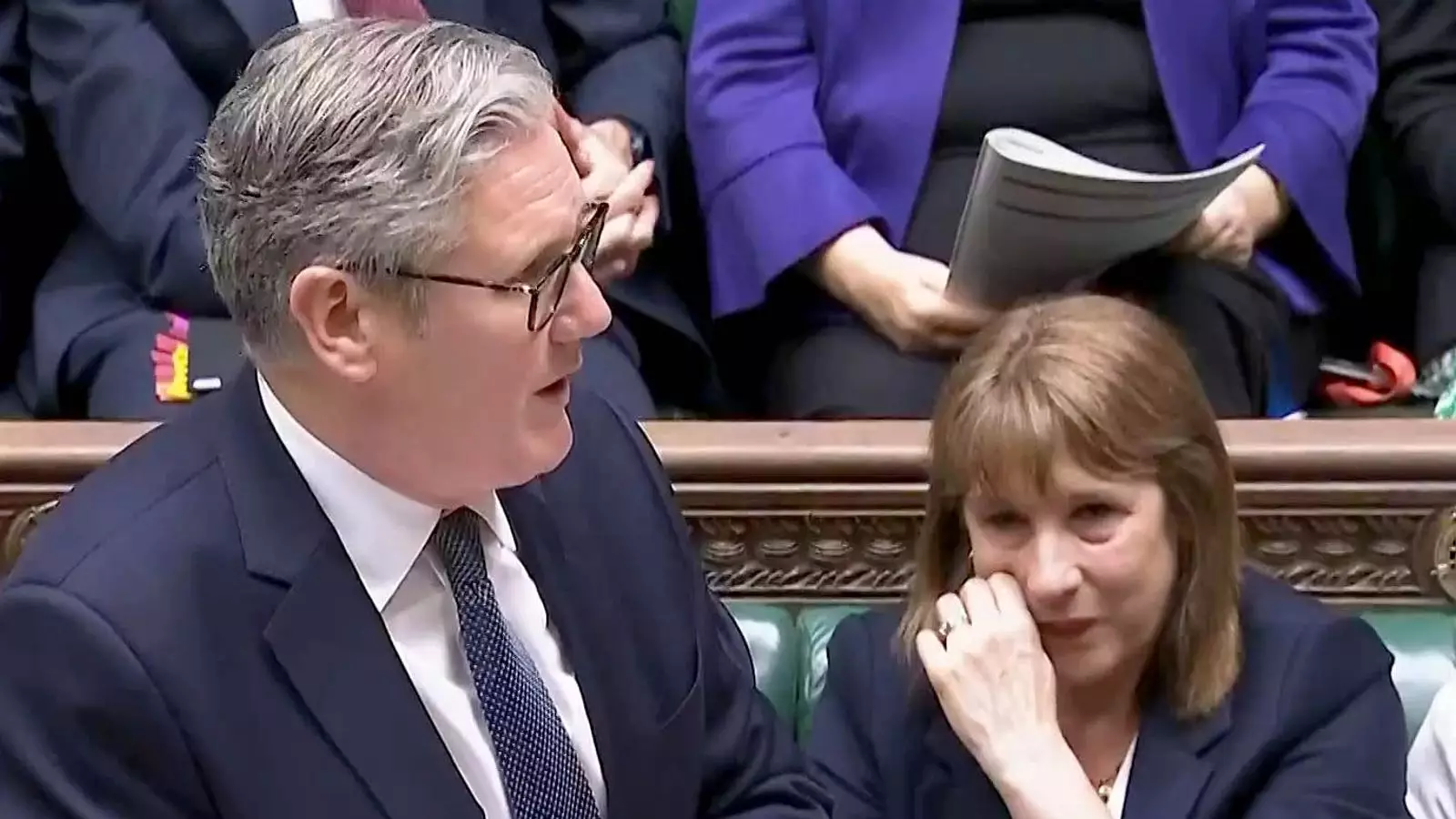In the tumultuous landscape of contemporary politics, stability often hangs by a thread, and recent developments reveal just how precarious that thread truly is. The whispers of leadership upheaval, spurred by declining polls and internal dissatisfaction, cast a shadow over the future of Prime Minister Keir Starmer’s government. Senior Labour figures, speaking anonymously, suggest that a deteriorating electoral performance could catalyze a leadership crisis within months. Such candid admissions signal a party grappling with its identity and the efficacy of its leadership, questioning whether Starmer’s tenure can withstand ongoing underperformance or if recalibration is unavoidable.
This internal strife underscores a broader truth about political resilience — it is fundamentally linked to public perception and electoral success. When polling numbers reflect waning support and opposition parties gain ground, especially fringe groups like Reform UK and the Greens, the pressure mounts on leadership figures to explain and adapt. The potential for a leadership departure becomes more tangible when the political climate shifts unfavorably, and critics argue that Starmer’s credibility is in jeopardy if the next set of elections — in Wales, Scotland, and London — yields disappointing results. The narrative is shifting from strategizing for victory to contemplating the inevitability of change, revealing an impatience that can accelerate leadership instability.
Internal Struggles and Emotional Toll
Beyond electoral concerns, the personal toll on political figures signifies the intense pressures they face. Rachel Reeves, the current Chancellor, was visibly distressed during a recent Prime Minister’s Questions session, her emotional state causing market fluctuations that further threaten economic stability. The Prime Minister’s insistence that Reeves remains central to the government’s ambitions reflects a desire to project unity, yet her tears tell a different story — one of internal conflict or external pressures spilling over publicly.
This scene highlights a critical flaw within political leadership: the inability to manage internal emotions and external perceptions simultaneously. Reeves’s emotional display, regardless of the cause, serves as an unconscious barometer of the stress permeating the upper echelons of government. Her subsequent reaffirmation by Starmer underscores the importance of loyalty and stability within the cabinet, yet critics might argue that such unwavering support masks underlying vulnerabilities that could surface when least expected. The political narrative often champions resilience, but the visible breakdowns—emotional or otherwise—undermine the veneer of strength that leaders attempt to project.
The Risks of Policy Missteps and Public Disillusionment
The recent passage of a contentious welfare bill, met with rebellion from Labour MPs and major financial U-turns, exposes the perilous landscape in which political leaders operate. The creation of an unexpected £5 billion “black hole” raises questions about fiscal responsibility and strategic planning. Such errors, compounded by internal dissent, can diminish public trust and fuel narratives of incompetence or disarray. Leaders like Starmer and Reeves are caught in a cycle of promise and disappointment, with each misstep fueling skepticism and eroding support.
This scenario underscores the danger of policy decisions that appear disconnected from the immediate needs or sentiments of the electorate. When leadership is perceived as conducting a destructive tug-of-war between ideological agendas and pragmatic realities, the disconnect feeds into disillusionment. Voters, increasingly cynical, scrutinize every move, and the risk of losing their confidence rises exponentially. The question becomes whether leaders can bridge this gap, communicate effectively, and demonstrate competence in the face of mounting pressure and faltering public trust.
The Future of Leadership in a Turbulent Political Climate
The unfolding story is not merely about individual leaders but about the direction of governance itself in uncertain times. The internal dissent, emotional turmoil, policy blunders, and shifting voter sentiments suggest a government on the brink of a critical turning point. A leadership change may not necessarily be the solution; instead, it calls for introspection, renewed strategy, and a genuine effort to reconnect with the electorate’s aspirations.
The challenge for the centre-left liberal faction is to advocate for pragmatic, compassionate policies that resonate with ordinary citizens while resisting the siren call of populism and chaos. Leaders must demonstrate resilience rooted in authenticity, overcoming internal fissures and external skepticism alike. The path forward demands more than political survival; it requires a committed effort to restore faith in institutions and the democratic process.
In a political arena fraught with instability, the true test lies in the capacity to adapt, learn from mistakes, and foster a sense of hope grounded in realism. Leadership’s future hinges not on individual bravado but on collective resolve, strategic clarity, and the courage to face uncomfortable truths. The political fabric is strained, but with deliberate effort and authentic commitment, it can be reinforced to weather the storms ahead.

Leave a Reply